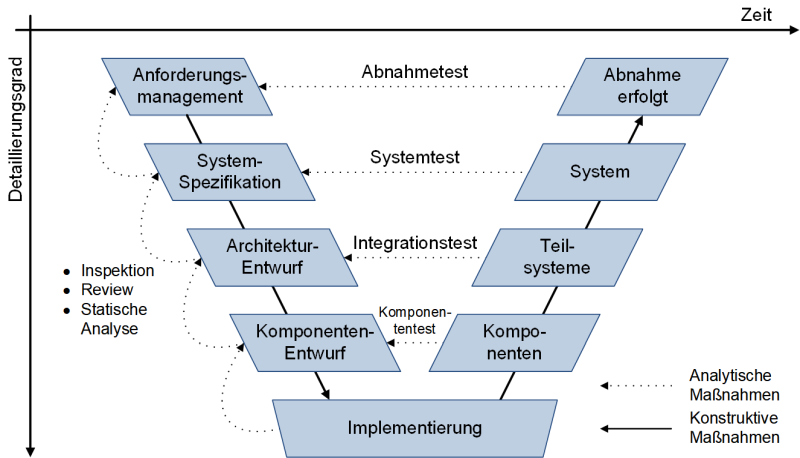Effective, modern, and structured test management
Due to the complexity of the system landscapes in companies, test management is becoming increasingly important. Before implementing IT projects, every company should have a clear test management concept tailored to the company. Test management works closely with project management, quality management, change management, and risk management. In general, the earlier the test manager is involved in the project, the better.

Creation of an effective, modern, and structured test management concept tailored to the company, including the ISTQB standards.
The ISTQB standard defines the test process into multiple phases to ensure that all necessary steps are considered when conducting tests. These phases include:
- Planning and Control: In this phase, a test plan is created which outlines the objectives, strategies, resources, and schedules for the test process. The selection of suitable tools and techniques is also included in this phase.
- Analysis and Design: In this phase, the requirements and specifications of the software are analyzed to identify test cases and test conditions. Test cases are created to verify the behavior and functionality of the software.
- Implementation and Execution: In this phase, the test cases are implemented and executed. It is checked whether the software meets the requirements and whether the test results correspond to the expected results. Automated tests can also be performed in this phase.
- Evaluation and Reporting: In this phase, the test results are evaluated to assess the quality of the software. The results are documented, and a test report is created that provides recommendations for future testing and improvements.
